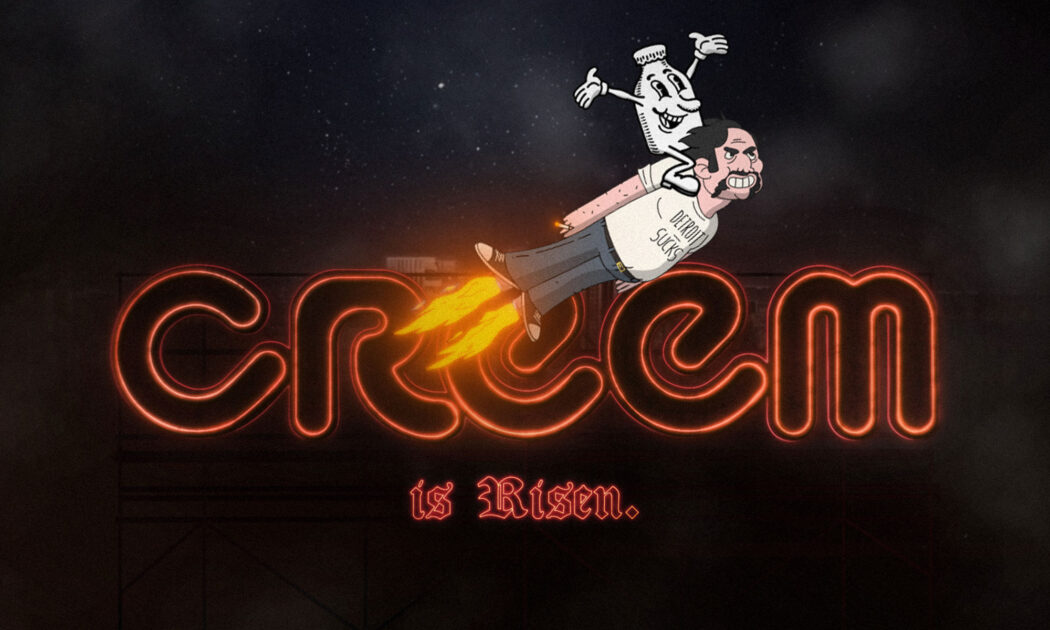A conversation with one of rock journalism’s pioneers
By Laura June Kirsch
“Are rich people, royal people, extreme sports people or artists different than the everyday person? That’s pretty much been my mission, to show that they’re not.” Jaan Uhelszki didn’t plan on being a rock journalist, in fact, it was a job that didn’t really exist prior to her time in the field. Having a fascination with history and English royalty, she wondered about larger-than-life figures and knew she wanted to write about them, initially hoping to be a sports writer. It was during the rise of The Beatles that Jaan realized writing about music was her destiny.
“If I’m on a desert island, I’m taking The Beatles catalog. It was my first rush of music. I used to sit at the kitchen table in Detroit. They would premiere a song an hour. And I had a stack of paper plates and I’d copy down every lyric.”
After quitting college to work at CREEM, Jaan never looked back. The iconic Detroit magazine was launched in 1969 by its original publisher, Barry Kramer. A local paper rejected a review he had written (to his dismay). In true rock and roll fashion, he took matters into his own hands and started his own publication.
CREEM is an integral part of music journalism’s history—in the ’70’s it was the second-largest rock magazine after Rolling Stone. They were known for their raw storytelling and early coverage of cultural shifts in music like the rise of punk rock and new wave.
Sadly, Kramer passed away of an untimely death in 1981, leaving the magazine to his then four-year-old son, JJ Kramer. After making a successful documentary about CREEM in 2019, JJ finally achieved his dream to relaunch the publication in 2022, bringing Jaan back to where she first started.
We caught up with the legendary rock journalist about returning to CREEM, her impressive career, being an extra Kiss and figuring out who stole the tour doctor’s quaaludes while on tour with Led Zeppelin.
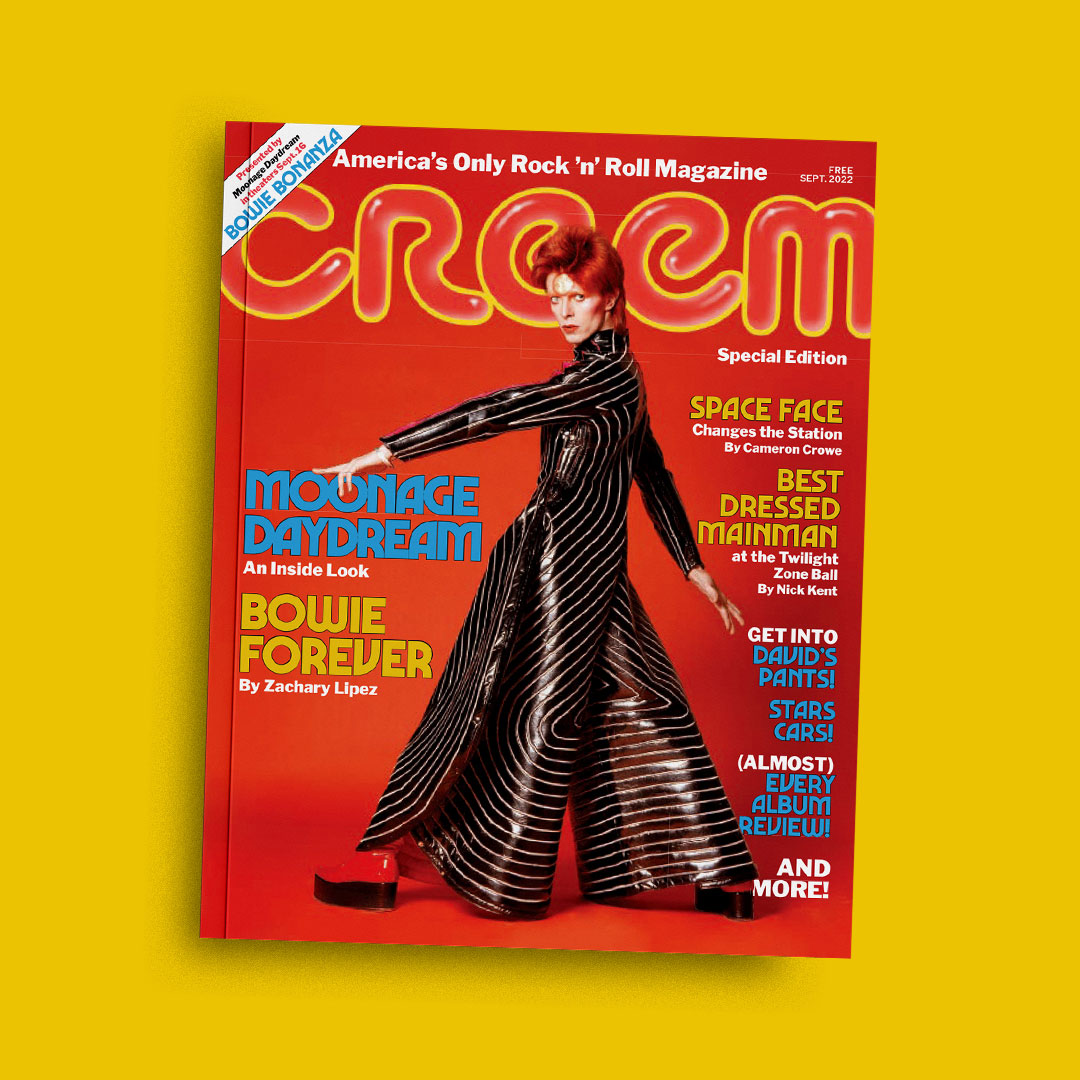
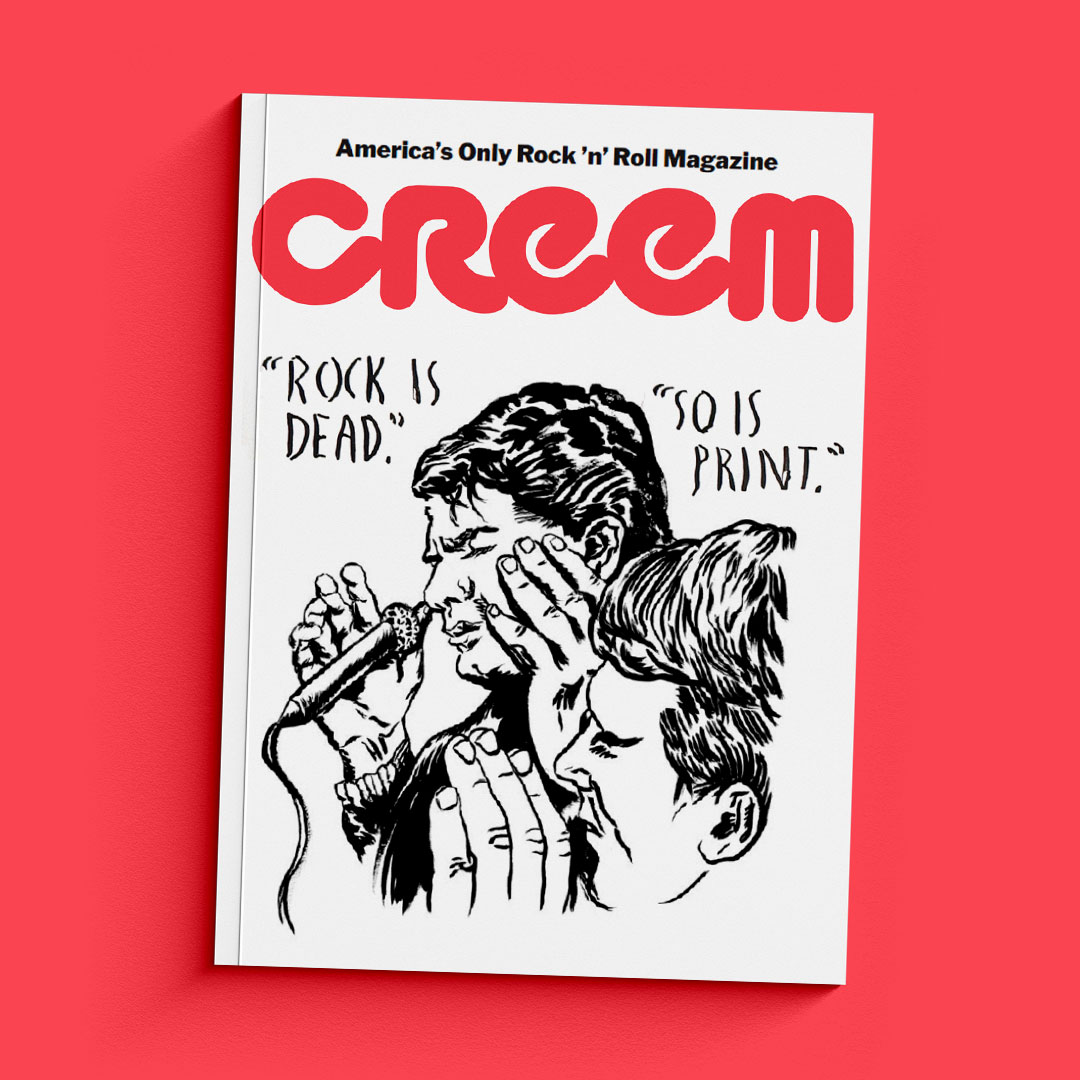
Laura June Kirsch: How does it feel to return to CREEM after all these years?
Jaan Uhelszki: Great, I’ve always been the guardian of CREEM. Honestly, the first time around nobody knew how to write a rock story. None of us had, we’d all dropped out of college and there we were sitting in an office writing about bands and interviewing bands. It really showed me that you could make something out of nothing. I was there for six years, until I moved to LA. I’d always stay somehow connected though because I’m a Detroiter and I’d go back to see my parents in Detroit all the time.
For the relaunch, JJ called me and said, “Could you be quality control? Could you read everything we’re gonna put in this and tell us if it’s CREEM or not?” So I came on kind of like, I always think of it this way and it’s a really stupid image, but Lucy and Ethel and the Chocolate Factory and all the chocolates are coming off. So, you know, fast forward I’ve got my teenage job back, I’m now the editorial director and I’m still reading everything that goes in the magazine to make sure that it’s CREEM. So I kept that part of it too.
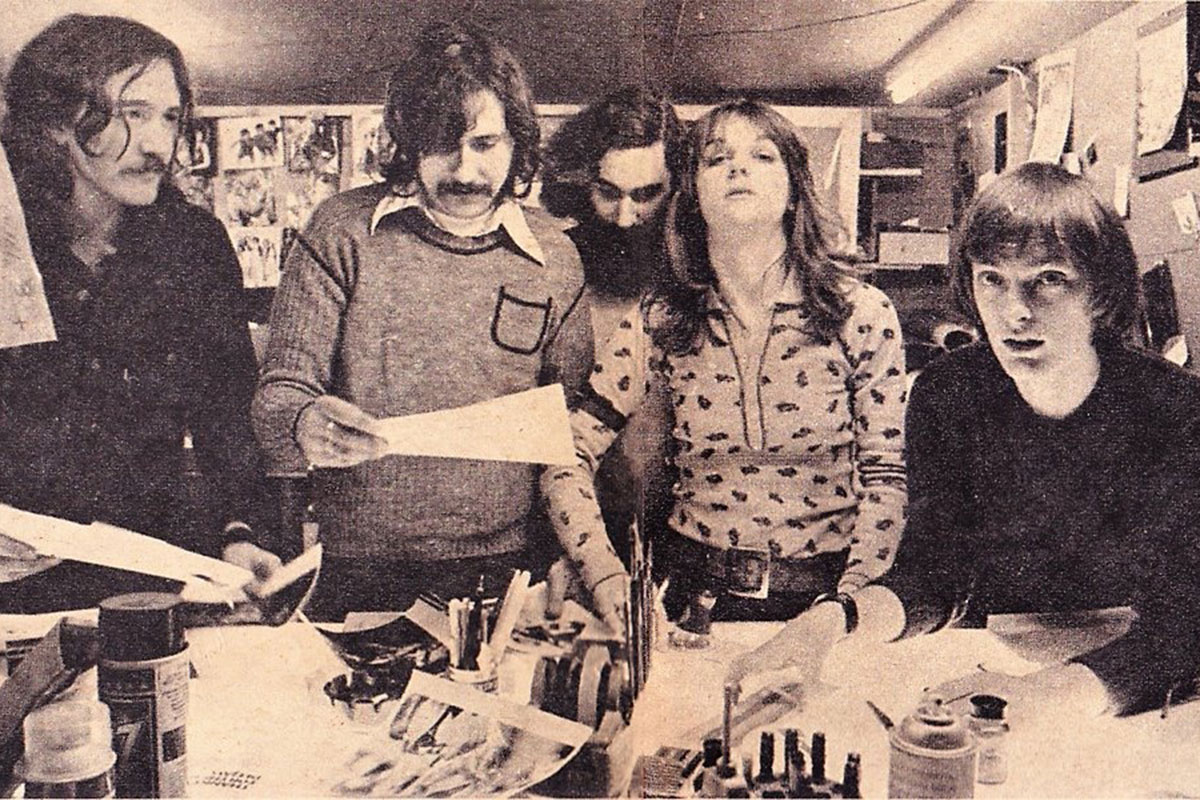
LJK: Are you excited?
JU: I think I’m excited, it just seems normal. So many people have tried to relaunch CREEM, other people have licensed it. I’ve not stopped writing about music all these years, I still write much the same way I did when I started with the same kind of attitude “Jaan versus the rock stars.”
I feel like the last woman standing sometimes. The last CREEM member standing. Like punk rock—like the Ramones and The Stooges, it really devours its young. It was a rough life and we lost a lot of people on our staff. Ben Edmonds, who was my closest male friend, died a couple years ago. Lester Bangs died and Barry Kramer died (rock journalist and founder of CREEM). When we were doing the documentary we’d book an interview with somebody and damn if they weren’t gone.
It’s different this time around because the people that JJ hired are much more pro than we were and come with credentials. Maria Sherman came from NPR, Grace Scott wrote for Vice, Fred Pessaro’s from Vice and Dan Morrisey’s from EW. They all don’t wanna take crap from rock stars, you know? They want to tell the truth at any cost. So that part’s the same. I think that was really important. Lester Bangs and I had this saying that “rock stars are not our friends.” I tend not to let myself get too close to them. The real secret is I do better stories on ones I don’t particularly like, you know, because then I can ask them ruder questions.
LJK: Rock music has somewhat fallen to the wayside since its last big boom in the mid aughts. Do you see it making a comeback?
JU: I want it to come back, I started with rock. I mean I’m from Detroit—we like either heavy rock or punk rock or proto-punk rock or garage rock. I like garage rock probably the best, I don’t like anything too perfect. I go to Spotify and listen to their new music Friday and then I’ll pick out record labels that I like that will send me music during the week and honestly the only rock that really came out this week or last week was the new Queens of Stone Age. It’s got a hollow haunted sound that’s not my version of rock, you know? So I haven’t seen anything I love. I mean, I still love Metallica. I haven’t seen anything except Turnstile that gives me indication that something’s up. I want it to come back, that’s my preferred listening material. I don’t want to listen to old music all the time, I really want to see that there’s something else. But I really haven’t seen any hints of it.
LJK: Electronic music has taken over so much of the music space these days and now we are getting into AI music. What’s your take on these shifts?
JU: I just spent two days with Odesza in Seattle and they’re like gods. It’s like atmospheric music that gets inside of you. It’s very subliminal. It moves you. The primitive self-response to EDM music, I think it has to do with beats and vibrations. Which leads us to AI—the idea of AI anything freaks me out, that we would be replaced by AI.
Even the fake Drake sounded like Drake. The human imagination can’t really be replicated because it’s so idiosyncratic, but couldn’t they learn that too? I wish we could just put an end to it and that makes me feel like an old bogey. I don’t know what advantage AI has. It dilutes the genius of human brains to me.
LJK: There are talks that all content will eventually be tailored to each individual person’s personal taste with AI. In my opinion, the importance of art and music is to change how we think, and how can that happen if we are not looking at things from a different perspective?
Jaan: That’s a really interesting point, I didn’t think about it that way—that art changes the way you think. It moves you and it causes you to look at something in a different way. Yeah, if you’re gonna be targeted by the algorithm you’ll just get more of what you like.
LJK: It’s amazing that technology has lifted barriers to entry for creatives but at the same time having so much content being made has made it much harder to find quality work. How do you feel about the swiftness that a lot of music is made today?
JU: I know, it’s like back to thrifting—you’re on a treasure hunt and you have to really look hard. I mean, good enough is never good enough for me—I always want whatever I do or whatever I consume as art to be a really high quality. You know, am I a snob? I guess so.
I like things that move me and you can see somebody’s soul splattered all over it. Most real artists don’t do it with this fastness, this quickness. Almost everybody I know who I respect suffers somewhat, or it takes a long time where they have a ritual and a process.
Honestly, the best artists are self-loathers. If you doubt yourself, you’re going to keep trying to be better and better and then you become better. So I think like for the point-and-shoot world, you know, and how everyone had an iPhone and that replaced real photography in blogs and in like the internet news services back in the early two thousands—it really took the tone down for photography. You know, I still like the, what is that moment, that Cartier Bresson moment where you’re waiting for that?
LJK: The decisive moment.
JU: Yeah, I love that. You can see it in the photos. I am definitely a photography enthusiast and you know, I remember when I took a photography class and you had to get your f-stops, right? And you had to compare that with your film speed. There were so many cogs in the wheel to just take a good picture. And now really it’s something else, it’s not the same. I think that the soul is lacking. There’s just some extra layer, some little germ in the basement of our minds that somehow isn’t translated. Like, too easy is just too easy. It’s too easy to consume.
LJK: As a journalist who specializes in music, what are your tools for discovery these days?
JU: I listen to everything in one day, you have to set aside like almost four hours and let the Spotify Friday new music run in the background. When you hear something you stop and note that. Because if it’s not important to you, it doesn’t connect with you, then you’re not going to hear it—it’s gonna be background music. When you hear something that you resonate with, then that’s something good—because it moves you. It’s like Grace Slick said, “God is vibration and sound is vibration.”
I think that music is important because it really is how the tribe communicates and it’s how we pass our information. I hate to overuse this word, but like soul information. Like, what soul? I think the people who write songs pull ’em down from some other world. I think musicians hear things that we don’t hear. They know things. They are tapped into a different channel. In order to get that it’s really important to have that information, you have to figure out whatever way works.
In my age group, my friends don’t listen to music much anymore but I always did and always will. No one’s gonna ask me, oh, did you hear that new song by G Flip? So it’s a solo process now. If you’re going into the wilderness, you’re going alone now.
LJK: Quintessential rock question, The Beatles or The Rolling Stones?
JU: Both. Both at different times.
The Beatles came out when I was like, age 11—and it’s pre-sex, it’s like you can be in love with somebody and they don’t have penises. The Beatles didn’t have penises in your mind *laughs* and the Rolling Stones were all about sex. So for me it’s like, 11 to 14, The Beatles and 15 for the rest of my life, The Rolling Stones. I have to say that I have never interviewed Mick Jagger because I needed one sacred cow that I would never be disappointed with.
I did stand next to him at a party once when I was on tour with Led Zeppelin. We were in Dobbs Ferry outside of New York City. I saw Jimmy Page, who I knew, talking to Mick Jagger. So I went over to them—I wanted to see if it was true that Mick Jagger really was that short. And I’m not that tall. I mean I’m five seven and I had heels. I went and stood next to him and he was like two inches shorter than me. It was like, really? Did I have to know this? So that’s as close to Mick Jagger as I’ve ever gotten.
LJK: What’s a wild story from being on the road with Led Zeppelin?
Jaan: I went on tour with them twice. The first time was not eventful, it was nothing crazy except that they were Led Zeppelin.
Their last tour, I guess it was ’75, I think I was there for seven days but I couldn’t get Jimmy Page to talk to me. I was running out of time and freaking the fuck out. Like I didn’t know what I was gonna do. It couldn’t be a cover story without Jimmy Page. So it was my very last day and I said to the publicist, “I’ve gotta have this story.” And she goes, okay, okay, you’re going home tonight, so I’ll figure it out. So she calls me and I go into his room and he’s dressed in what he wore the night before. He’s smoking, he’s making blender drinks and he looks at me and goes, “You’re not to speak to me directly. You must ask my publicist everything beforehand.”
I’m going, okay, this is really bad. This is worse than I thought. But then the light bulb goes off and I think “oh man, I’m just gonna play this for comedy when I write it.” So I do that, I have an hour with them and I realize by doing this, he only has to answer half of the questions, but it’s mostly just to fuck with me, you know? The night before someone had stolen the tour doctor’s Quaaludes. So I figure, okay, I’m gonna start with that. And I said, “well, did you steal the tour doctor’s Quaaludes?” Janine the publicist has to ask him my bad questions, so he has to hear it twice, you know, and has a fit and starts blustering like a “how dare you” kind of thing. And it goes on from there. I keep asking worse and worse questions. At the very end he says, “I’m going to have a party. And I’m inviting everybody, but no journalists.” It was so bad and so aggressive.
LJK: Did he ever apologize?
JU: No, he would never. Jimmy Page in character would never do that, he’s always Jimmy Page in character. That elegant, brilliant, beautiful man.
LJK: Was there any pressure to blur the lines between work and play in these scenes?
JU: No, no. It wasn’t hard because on my first tour I was with Steve Miller and he made this pass at me, you know, like come back to my hotel room kind of thing. I was really young and I said, “oh no, I have a boyfriend.” And he goes, “that was just a test because I wanted to teach you how you could actually interview someone that you’d slept with. Like, what do you say to them when you stick the microphone in their face?” And I thought, okay, that’s good to know. I will never have sex with a rock star. I will never do that because I will lose my power.
And the same thing with drugs. I wouldn’t do drugs with anybody. You know, I find the more you like somebody the less it’s like an interview, it gets too casual. So you’re not asking the hard questions. If you’re doing drugs with them, you’re on a different level, you know? I like that separation. The separation makes for better stories. The rock stars are not your friends.
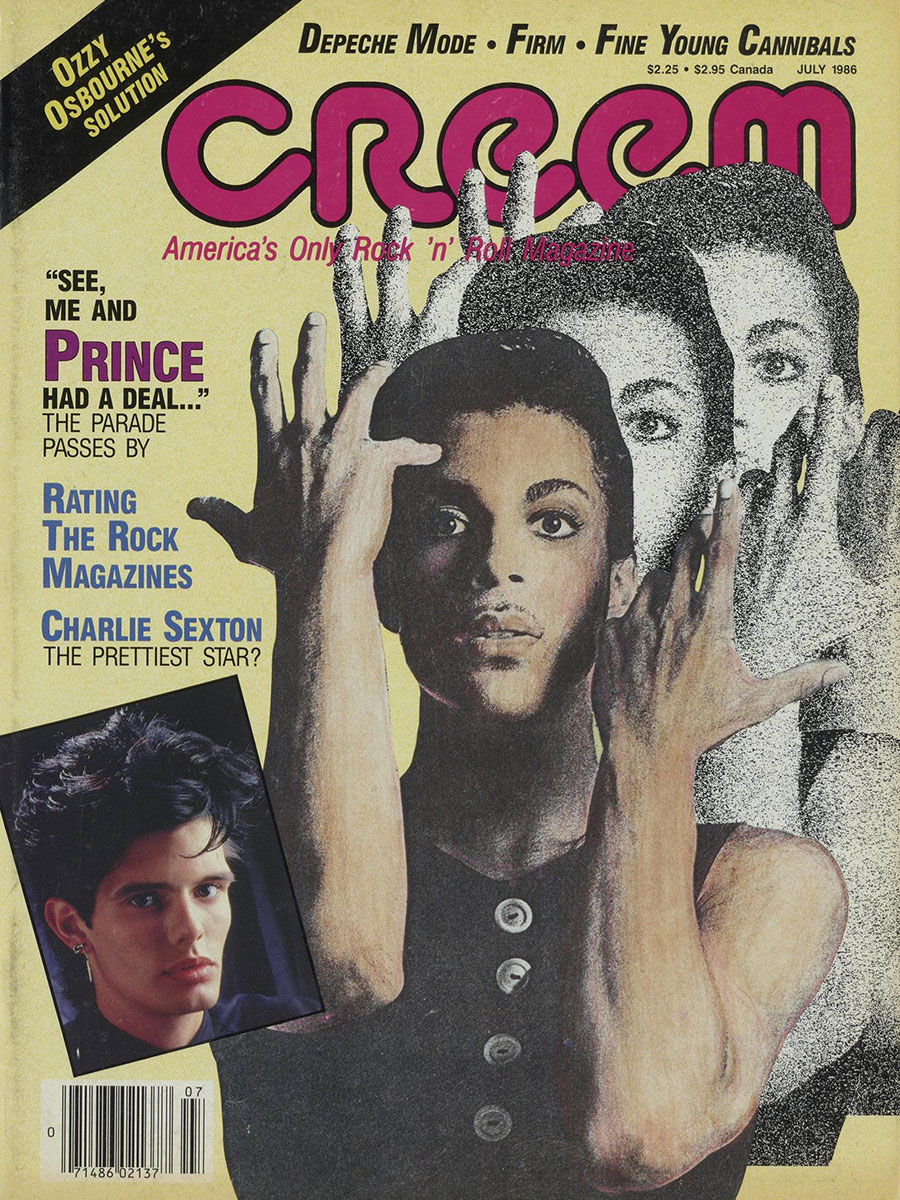
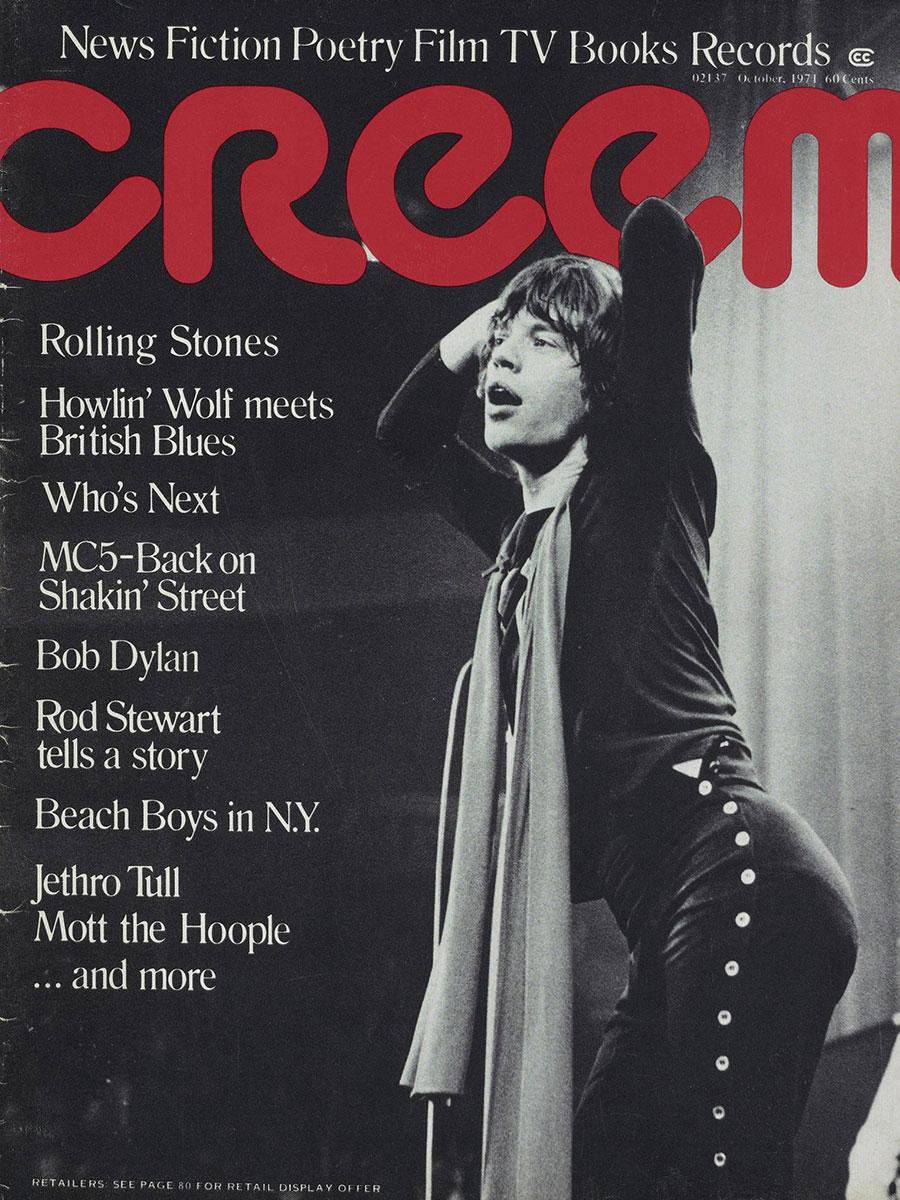
LJK: What are some of the standout concerts you’ve seen through the years?
JU: I saw Prince at Radio City Music Hall. I think it was 1984. That one blew my mind. I couldn’t believe how good Prince was. The Stone Roses, even though it wasn’t the best show, I felt like I was in the presence of magic being made. Led Zeppelin when they first played in Detroit, I think in January, 1969. The Beatles when I saw them in 1966. Amazing. Except for the fact that everyone was screaming. There was never a thrill like that, you know? It was like the first cut is the deepest. And Cat Stevens too, at Ford Auditorium. I love Cat Stevens, even though it’s not in my kind of music profile. I just loved his words and his songs.
LJK: Did you ever cross paths with Courtney Love?
JU: Yes. Oh my god. Now that is woman-on-woman crime *laughs*. She does not make it easy. There’s nobody like her. A couple of the times I’ve interviewed her, it always came to nothing because it’s a monologue. It’s manic, like someone talking at you full blast for hours and in the end you don’t know what to write about. You never get there. Like whatever there is, you never get in. You’re approaching it and then it goes by really fast. She takes you on this merry chase and there’s nothing. I think she’s her own worst enemy in terms of that.
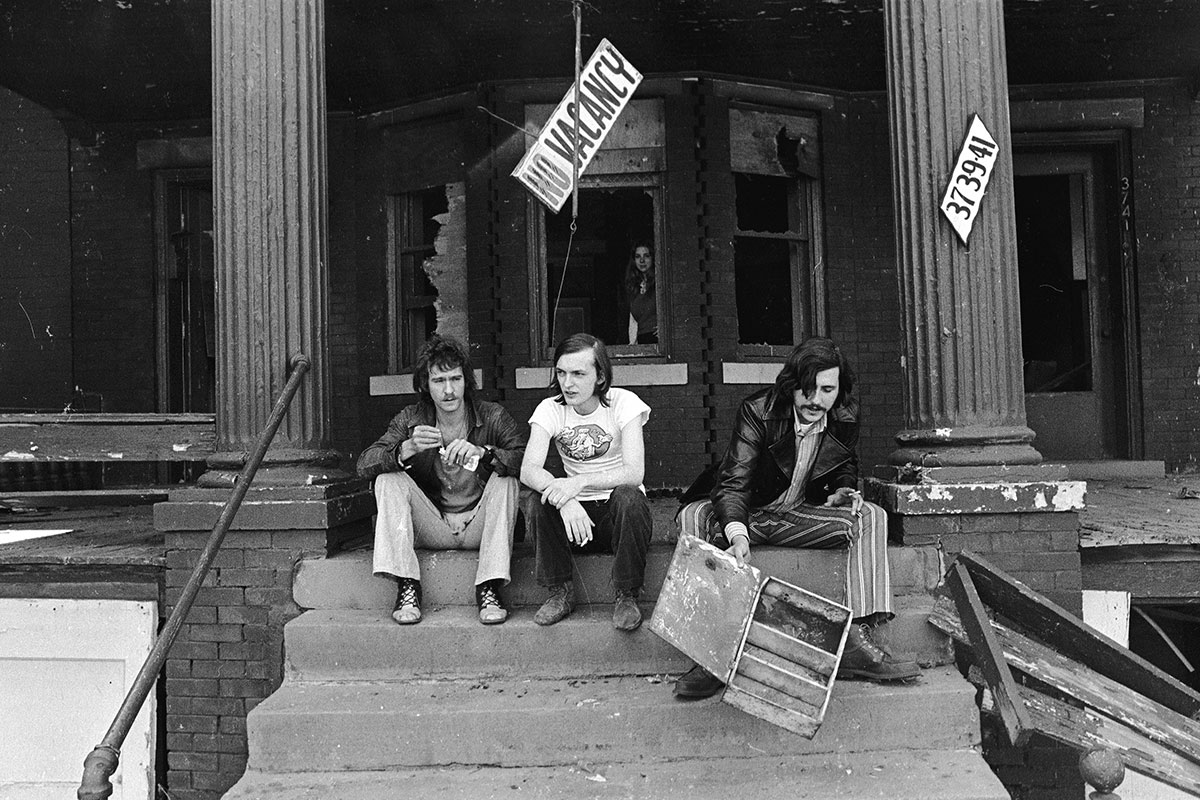
LJK: Sexism has been a long time issue for women in the workforce, especially in the music industry. In the pre-Me Too era did you experience any challenging situations?
JU: It wasn’t huge for me. Once Rick Wakeman from Yes answered the door in a towel and he wouldn’t put clothes on. You know, that was weird. But the weirder part was, or maybe the better part was the manager was there, so I didn’t feel like I was in peril. There was another manager, who I’ve always promised I wouldn’t name, for my own sake *laughs* because he’s a scary guy who once offered for his clients, who were a duo, to come to my hotel that night to have a personal interview, like, to get a better story.
We would have had a threesome. I just said, “oh no, we’re not allowed to accept tips.” I’ve always had that little smart ass kind of exchange. I was also really protected in that CREEM atmosphere. Lester Bangs, Dave Marsh and Ben Edmonds were like my big brothers. Anything that happened, they wanted to defend me.
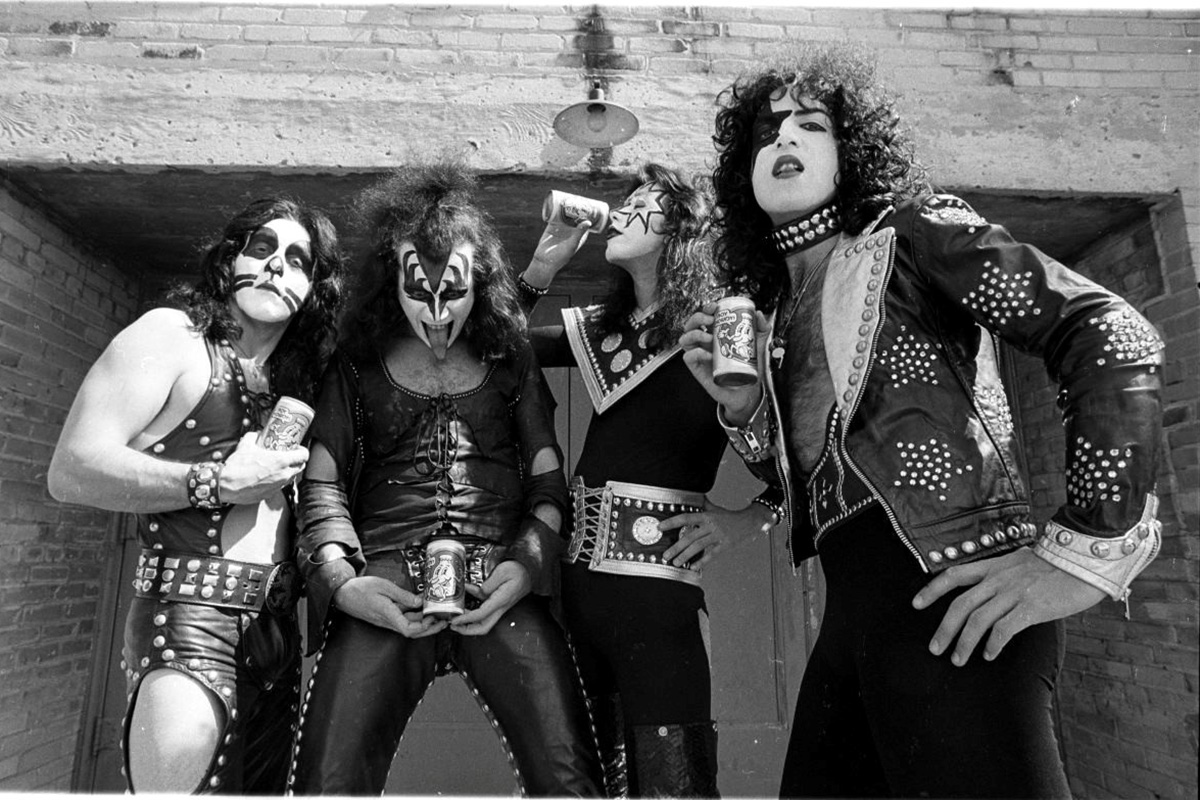
LJK: I’ve heard you once performed on stage with Kiss. Can you tell us a little about that?
JU: The assistant to the publisher, Connie Kramer and I were working late one night and she was reading Esquire Magazine. They ran a story by this New York writer called Blair Sabol who had been on the road with Tina Turner and The Ikettes. To cover the story, they let her be one of the dancers and backup singers. So Connie Kramer said to me, “Would you do something like this?” And I said, “oh, in a minute I would love to do that. I’d see if I could do it with Kiss.”
So the next morning I called their label, Casablanca Records, and I said, “I want to do a story about Kiss, I want to join Kiss for a night.” The guy called me a half an hour later and he goes, “Okay, you’re on, you can do that. You have to promise one thing, you just can’t call ’em a glam band or glitter band”.
I met them at the airport. We went on a teeny little plane, which was scarier than hell to Johnstown, Pennsylvania. I got there early and they made me up. I thought I was going to go on for the whole show, that was how naive I was. They’re going on stage, I go on with them and their stage manager pulls me off and says, “no, you get one song.”
So I was dressed like them, like a baby Kiss *laughs* for the rest of the show. The crazy thing that dawned on me about a year ago is it was a sold out show. I think there were like 5,000 people there. And to this day, no one has ever come forward that they noticed an extra kiss on stage.
It changed my life because I got to know what musicians felt and I also knew what came back out of the audiences. It was this exchange of electricity between a band and the audience. I could see why people have a hard time giving it up. It’s such a great feeling.
Check out Creem’s 1st NY show at Roberta’s on July 22 here.

